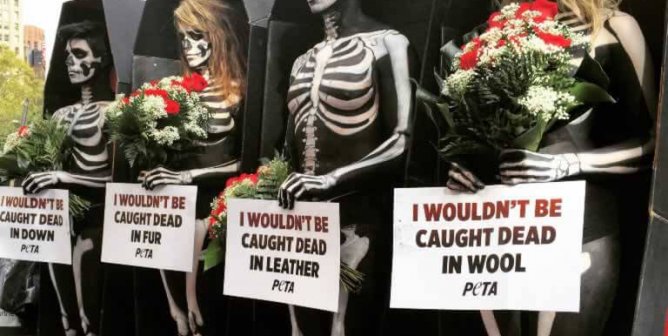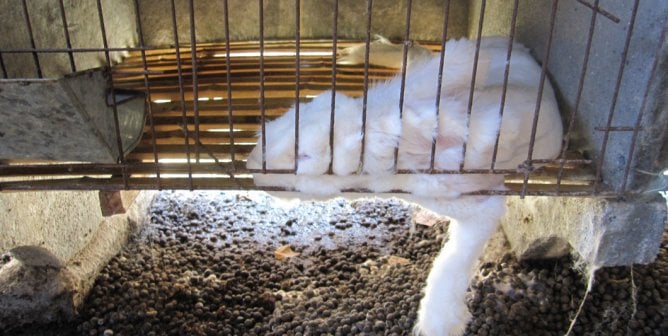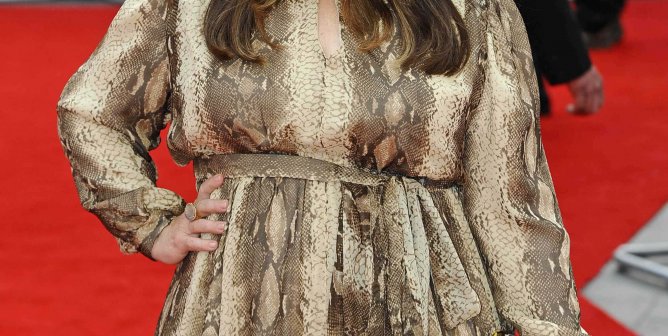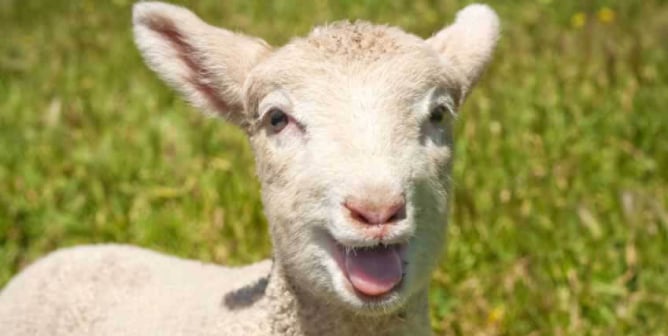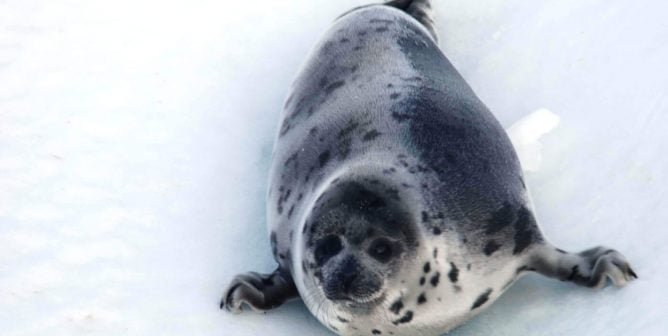What’s scarier than real-life skeletons? The leather, fur, wool, and down industries.
The iconic men’s magazine “Playboy” is pulling its pin-ups, but have no fear: Here at PETA, we’d still rather bare skin than wear skin.
PETA visited angora farms in China deemed “humane” by third-party auditors and discovered suffering, neglect, and cruelty beyond imagination.
After PETA released its angora wool exposé, Inditex banned angora from all its brands and found a great use for the wool it had in stock.
Robert Redford’s Sundance catalog gets out of the angora business.

Melissa McCarthy’s new clothing line is made for women of all pant sizes and just one heart size.
When animals’ body parts are used for mass production, to be turned into wool coats or leather boots, cruelty will always be part of the process.
Sport Chalet agreed to stop selling fur after learning from PETA how animals are electrocuted, bludgeoned, strangled, and skinned alive for their pelts.
PETA’s attorneys hit the company with a cease-and-desist letter.
Eighty-three rabbits are now safe and sound and won’t be turned into meat, fur, or bunny breeding machines.
As government subsidies dry up, most Norwegian sealers are leaving the cruel industry for good.
Activists outside wield bloody, skinned “animal corpses” while a PETA representative inside grills shareholders on why a Gap subsidiary still sells fur.
A new investigative report may explain why Israel hasn’t yet banned fur, despite strong support from the public and government.
PETA’s poignant collaboration with artist Solus reminds Dubliners of the thousands of victims of Ireland’s fur farms.
While discussing his use of fur, Karl Lagerfeld sounds exactly how you’d imagine a designer who uses fur would sound.

